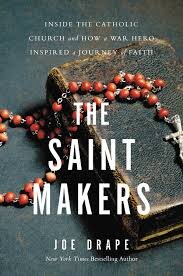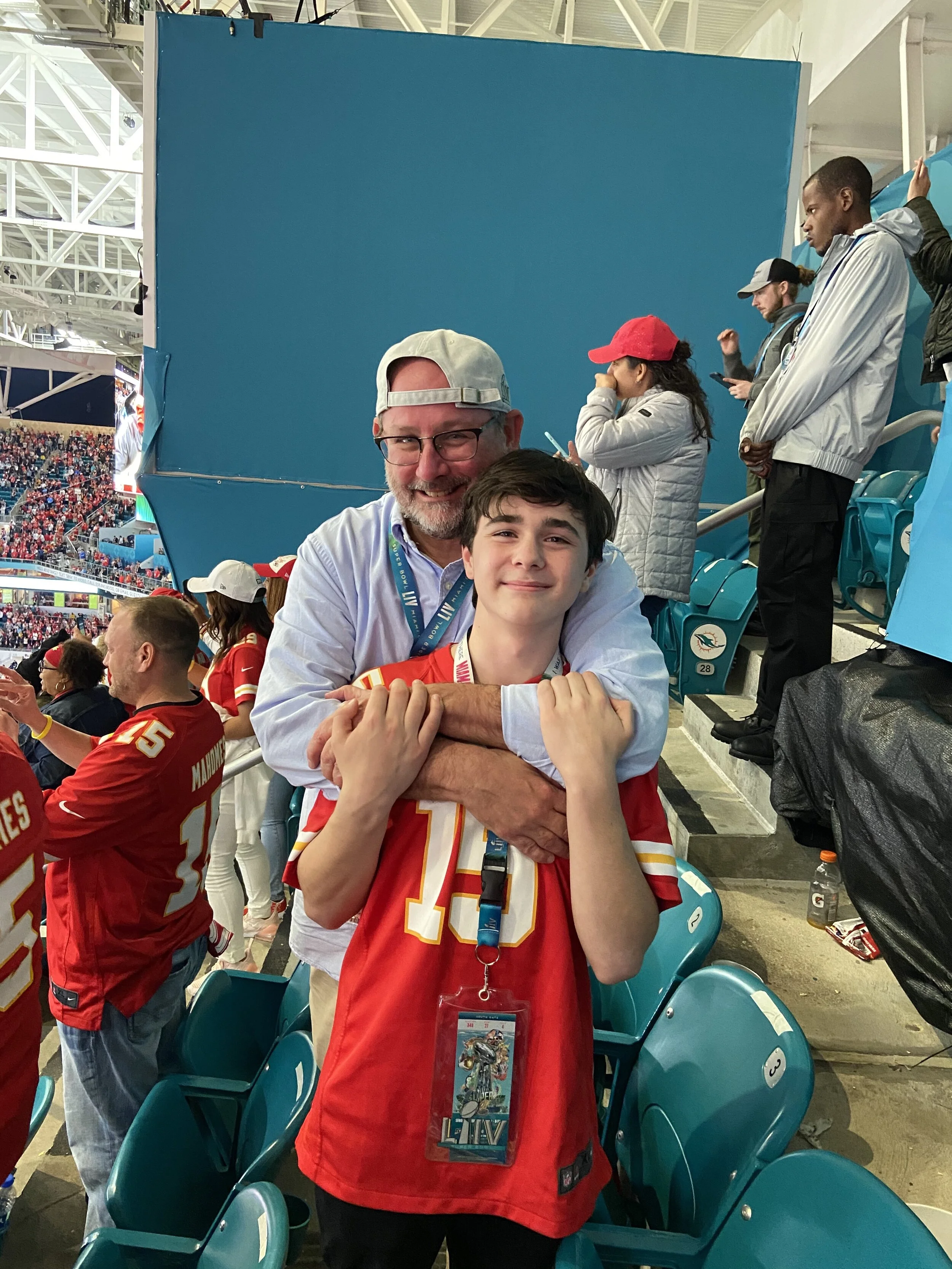Q and A: Joe Drape on His New Book About a Campaign to Recognize an American Saint
/Rev. Emil Kapaun, a Catholic priest and military chaplain from a tiny town near Wichita, Kansas died as prisoner during the Korean War, but he is at the emotional center of Joe Drape’s engrossing new book The Saint Makers: Inside the Catholic Church and How a War Hero Inspired a Journey of Faith (Hachette). From Kansas City, Missouri, Drape writes about the intersection of sport, culture, and money for the New York Times and his new book shares roots with one of his previous books, Our Boys: A Perfect Season on the Plains With the Smith Center Redmen (2009),which brought him, his wife, and young son to Kansas, where he learned of Father Kapaun. The priest was remembered for his courage that had “softness of velvet and the strength of iron,” and his spirit galvanized a campaign for his sainthood. In his suspenseful book, Drape explores the long, winding process of saint-making and the fascinating, unlikely allies who converged, determined to make Father Kapuan a saint. Drape enriches his book with an inquiry into his own faith and, with a light personal touch, draws on his Jesuit youth and reflects on Kapaun’s heroism. Drape shared his — and Father Kapaun’s — story with The National.
Q: Let’s get this out of the way. Father Emil Kapaun. How is his name pronounced?
A: This is the true test of Father Kapaun devotees. It is: Ka-pawn.
Q: You have known about Father Kapaun for over a decade, so what compelled you to write about him and sainthood now?
A: Life and work got in the way. I was aiming to have this out in 2016 or so, but then American Pharoah became the first horse to sweep thoroughbred racing’s Triple Crown in 37 years in 2015. I’ve been a horseplayer almost as long as I’ve been a Catholic so I pivoted and wrote American Pharoah: The Untold Story of the Triple Crown Winners’ Legendary Rise.
And, frankly, it took me some time to figure out my own spirituality. Until I did I could not write the book I wanted to.
Q: Not to get too psychoanalytical here, but your mother must have been really ahead of her time to give you The Power of Your Subconscious Mind on your thirteenth birthday!
A: My mom was ahead of her time. She received her master’s degree in social work from Catholic University in the 1940s and worked in that field most her adult life. She was a free thinker and encouraged us to explore the life of the mind. I probably do what I do because one summer she grounded me and the punishment was to read The Great Books, which was a series at the time that included the classics Tom Sawyer, The Jungle Book and Le Morte d’Arthur.
Q: You do a lot of great reporting in the book about the process of making a saint. In fact, your book could in part be categorized as a "Holy Procedural," much the way detective stories are often categorized as "police procedurals." How do you feel about the process?
A: The saint making process is continually evolving and given it’s 20 centuries or so old, it does a pretty good job of canonizing remarkable people whose life is worth imitating. The fact that the average elapsed time from a candidate’s death to canonization is 181 years attests to its rigor. There are hiccups in the process – popularity and politics can fast track saints, as we saw with Mother Theresa (5 years) and Pope John Paul II (9) — but overall it works.
Joe and Jack Drape
I believe Father Kapaun is getting a fair shake and will be canonized eventually. There’s only seven American saints, and only two of them were born here.
Q: In so many interviews, Father Kapaun was described to you as “ordinary.” My dear friend Studs Terkel would always say, “There are no ordinary people.” You portray Father Kapaun as quite special, so why do so many emphasize him as “ordinary?”
A: He was a farm boy from Kansas who, like many people from the heartland, did the things he did quietly. I walked way from this book believing that the most important part of being a saint is our ability to see ourselves in them. That if a soft-spoken man can demonstrate courage, service and faith then we all can.
Q: He comes through in your book as quite special. Your reporting reaches from the prison camps of the Korean War, to the Vatican, the plains of Kansas and the miraculous recoveries of two young people who prayed to Father Kapaun. You have a knack for segueing between past and present and between characters, yet you sustain the The Saint Makers’ considerable momentum. How did you approach the construction of this book and writing such a compelling narrative out of so many threads?
A: I am not musical at all, but I believe writing a book is a lot like composing. I say the words out loud as I type because I’m seeking a certain rhythm. At some point, I’ll realize this stanza is finished so let’s move on to another part. My pat line is: I’m a sportswriter so I leave the boring parts out. But ultimately, it’s my story to tell and I can do it how it makes best sense to me. Sometimes I’m right. Sometimes, not so right.
Q: You got this one right! While you certainly don’t make yourself the center of this book, you are quite candid about grappling with your own faith. How has working on this book changed you?
A: I am not saved. I am certainly no saint. But it has reminded me that to have an authentic spiritual life, you must be present and put effort into being a better husband, father, colleague, neighbor to be in touch with whatever higher power you choose. Most days I fail, but some days I almost get there.
Q: Let’s end on a profane question. The sainthood process does seem rather like the Baseball Hall of Fame. There are the obvious automatic selections (the Francis's of the world, the "all- time greats"), then those to be weighed and measured against others who are also meritorious and thus a rather subjective measurement. As a sportswriter, is that a good way to think about it? What am I missing?
A: Actually, you are not missing anything. I’d say it is far more subjective than baseball because there you at least have certain standards to measure candidates against – batting average, earned run averages. Saint making is not only subjective but it is at the mercy of popularity, politics and power. All that said – God makes the final call. I don’t think He makes too many mistakes.











